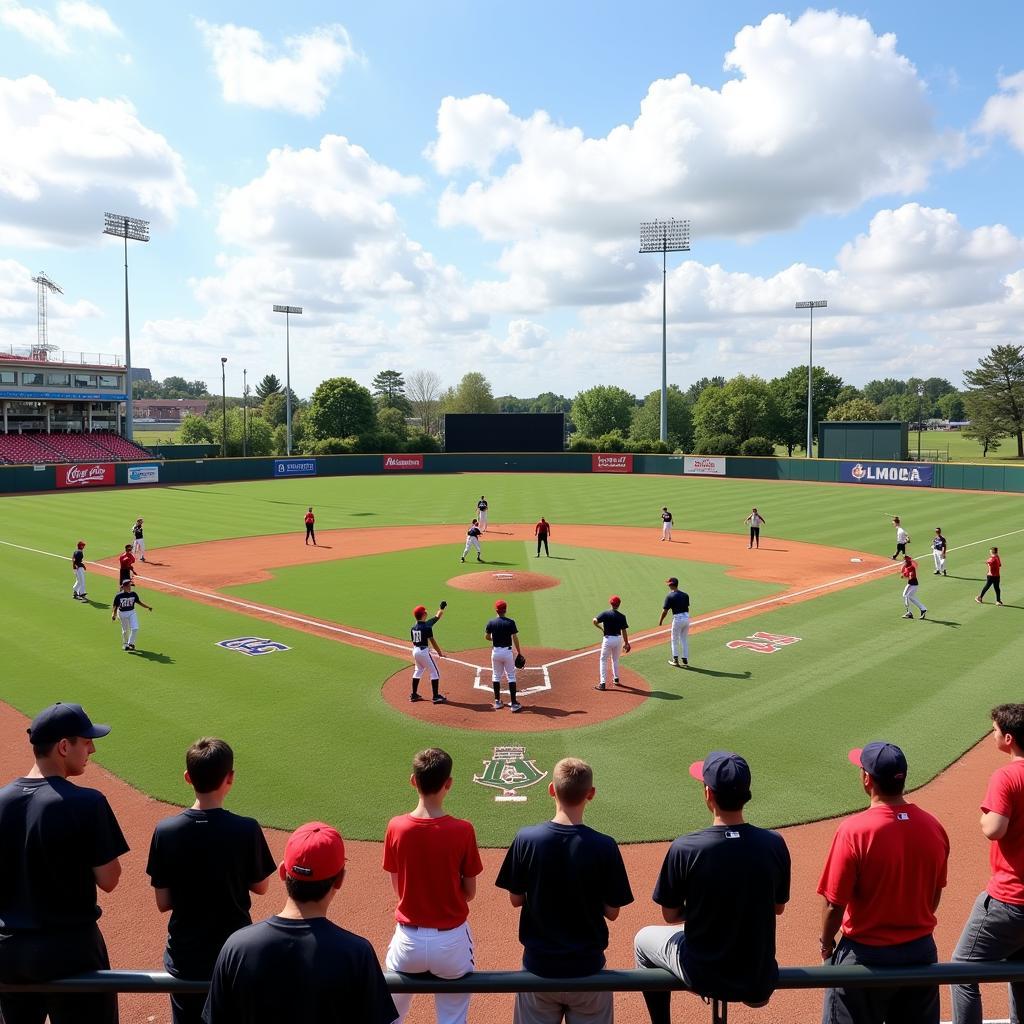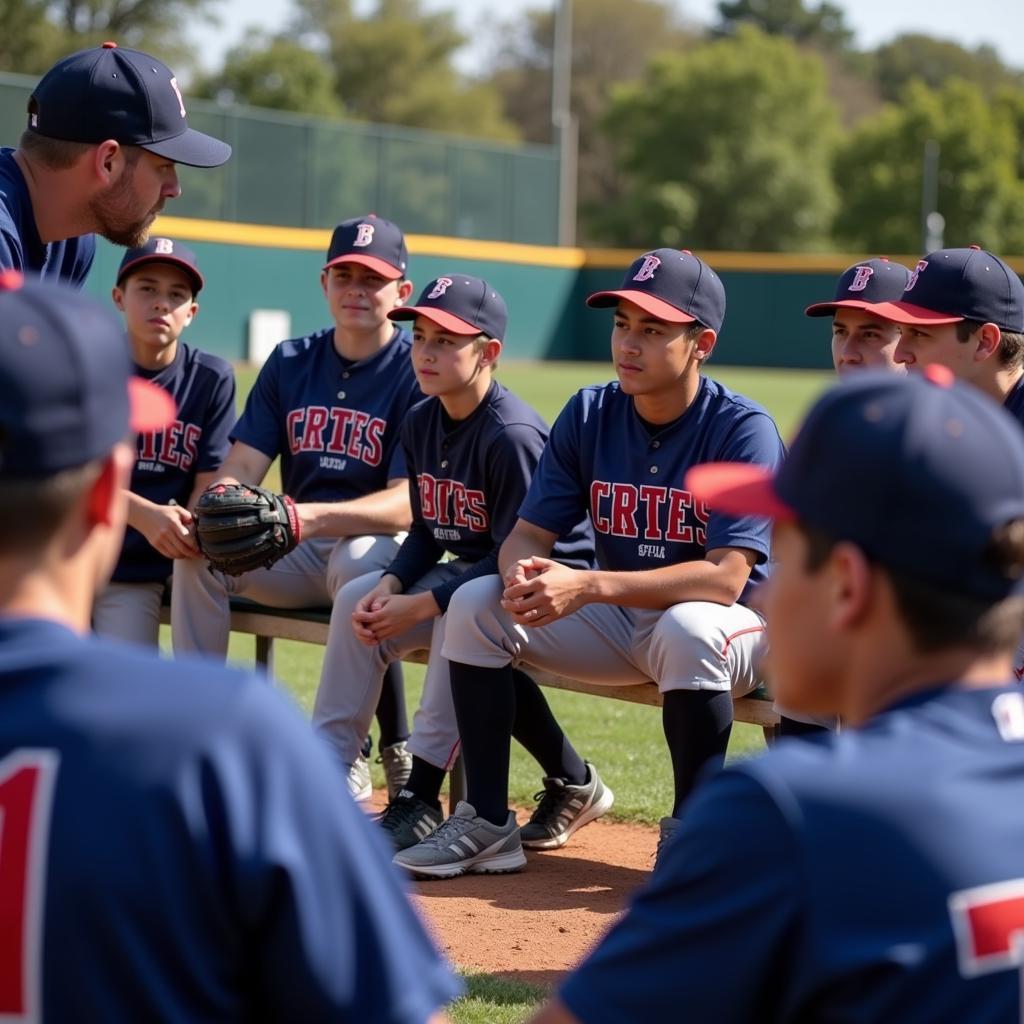Junior Day Baseball Reviews: What to Expect and How to Make the Most of It
October 21, 2024Junior Day is an exciting time for any young baseball player. It’s an opportunity to showcase your skills in front of college coaches and potentially earn a scholarship offer. But with so much going on, it can also be overwhelming. This article will provide Junior Day Baseball Reviews to help you understand what to expect and how to make the most of your experience.
 Junior Day Baseball Tryouts
Junior Day Baseball Tryouts
What is Junior Day Baseball?
Junior Day is an event hosted by college baseball programs for high school players, typically juniors. It’s a chance for coaches to evaluate potential recruits in a more intimate setting than a showcase or tournament. You’ll participate in drills, scrimmages, and meet the coaching staff.
What Happens at a Junior Day?
While each college program has its own format, most Junior Days follow a similar structure:
1. Campus Tour: The day usually begins with a tour of the campus, including athletic facilities and academic buildings. This is a chance to see if the school is a good fit for you both academically and athletically.
2. Introduction and Welcome: After the tour, you’ll likely gather with other recruits for a welcome session. The coaching staff will introduce themselves, talk about the program, and answer any initial questions.
 Meeting Coaches at Junior Day
Meeting Coaches at Junior Day
3. Skills Evaluations: This is the core of Junior Day, where you’ll showcase your abilities. Be prepared to participate in drills such as:
- 60-yard dash: Measures your speed and base-running potential.
- Outfield/Infield drills: Evaluates your arm strength, accuracy, and fielding mechanics.
- Batting Practice: Shows off your hitting power, bat control, and approach at the plate.
- Pitching Evaluation: (For pitchers) Allows coaches to assess your velocity, control, and pitching repertoire.
4. Scrimmages: Some Junior Days include scrimmage games, giving you a chance to compete against other recruits in a game-like setting. This is an excellent opportunity to demonstrate your game IQ and how you perform under pressure.
5. Q&A with Coaches and Players: Towards the end of the day, you’ll likely have time for a Q&A session with the coaches and current players. This is your chance to ask specific questions about the program, training regimen, academics, and team culture.
Tips to Make the Most of Your Junior Day Experience
- Research the School and Program: Before attending a Junior Day, do your homework. Understand the program’s history, coaching style, and recent success.
- Be Prepared: Pack all necessary equipment, including cleats, glove, bat, helmet, and water bottle.
- Warm Up Properly: Make sure you are adequately warmed up before participating in drills and scrimmages to avoid injuries.
- Be Coachable: Coaches want to see players who are eager to learn and improve. Be receptive to feedback and apply it.
- Be Yourself: Showcase your personality and passion for the game. Coaches look for players who are good teammates and fit within the team culture.
- Ask Questions: Don’t be afraid to ask questions throughout the day. This shows coaches you are engaged and interested in the program.
- Follow Up: After Junior Day, send a thank-you note to the coaching staff, expressing your gratitude for the opportunity and reiterating your interest in the program.
Conclusion
Junior Day is a valuable step in the college baseball recruiting process. By understanding what to expect and preparing yourself, you can make the most of this exciting opportunity. Remember to showcase your skills, be coachable, ask questions, and enjoy the experience. Who knows, it might be the start of your journey to playing college baseball.